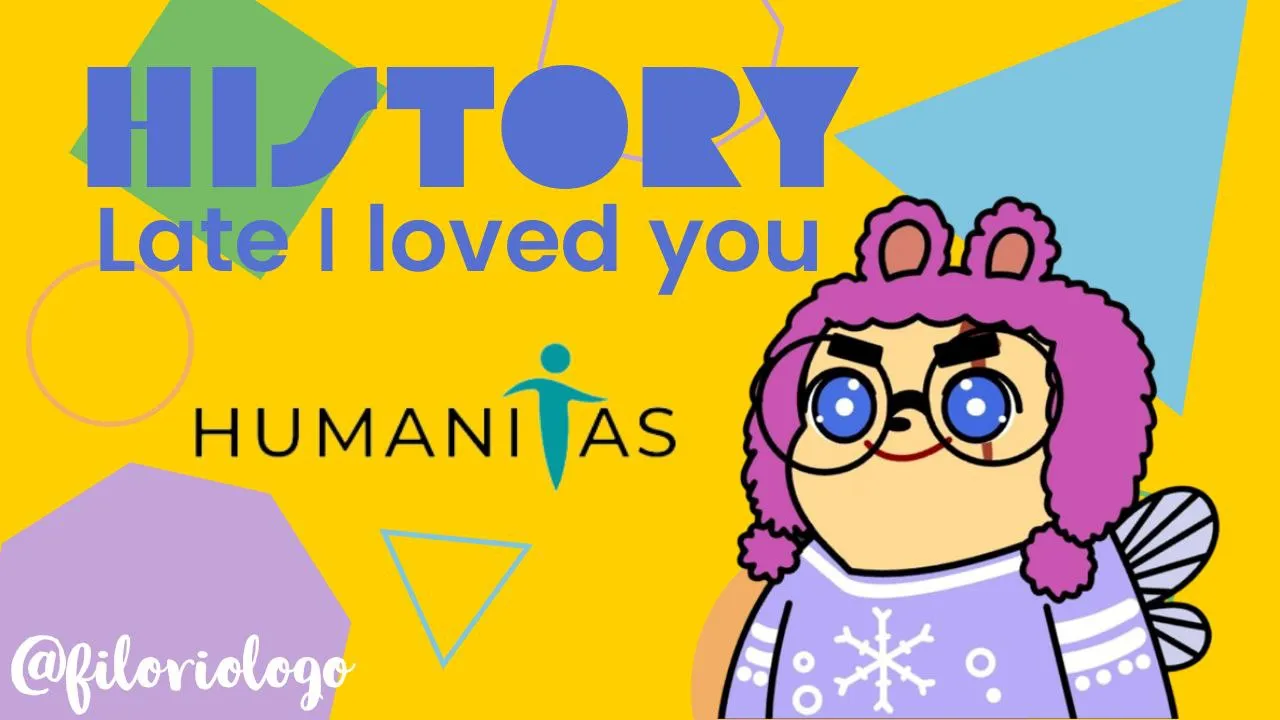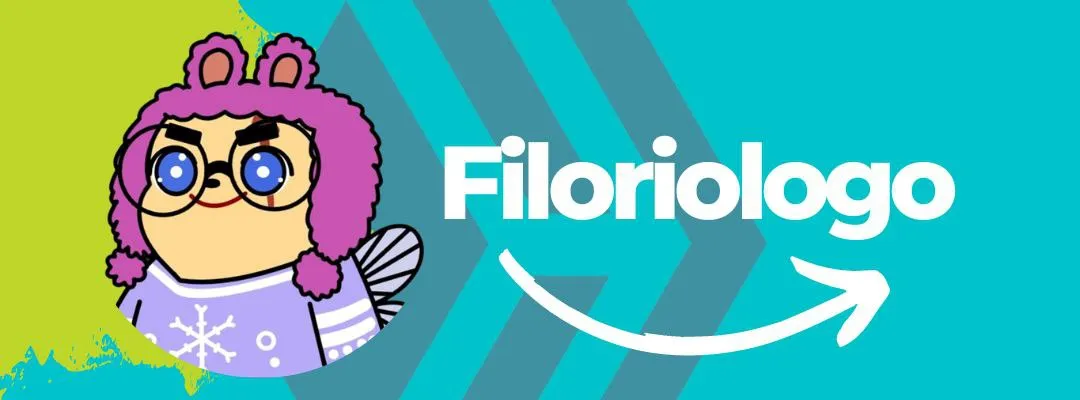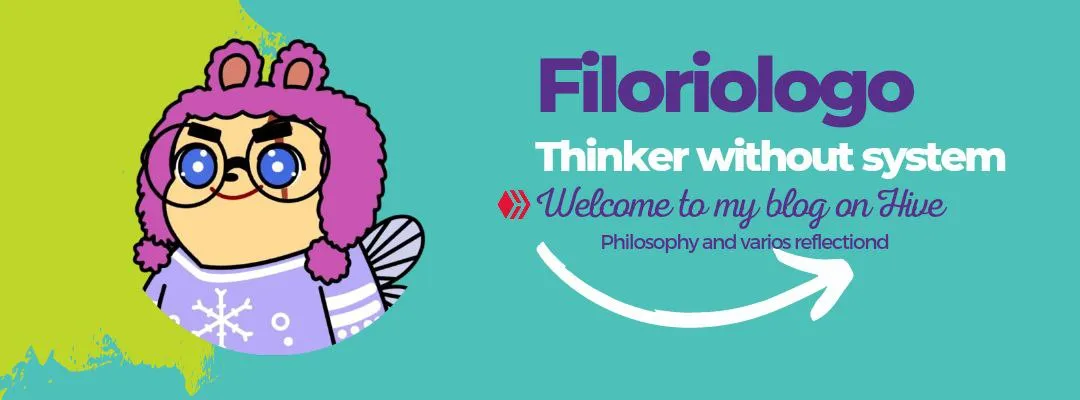
My relationship with history has been somewhat paradoxical, it was not until my university studies when I began to be even more interested in it, I think that the pedagogical methods I encountered in elementary and high school were not the most appropriate, and perhaps that is why in my youth I developed an aversion. For they focused on names, dates and specific times.
When I arrived at the university, in that first year of philosophy, where, I had to take a subject called History of Culture 1, I must confess that at first it caused me a bit of anguish because although I liked history a little, the academic prejudice due to my previous experiences with the subject of history was questioning my liking for the subject. But, thanks to the teacher María Soledad Hernandez who taught me to fall in love with history, partly because of her passion for teaching the subject, and her way of teaching history. She emphasized something that up to that point in my education, no teacher had ever done.
It was basically putting the focus on periods, understanding human history as a compendium of moments that are interconnected and linked directly or indirectly, or a bit of both. It taught me to look beyond the dates, or the simple names of the most outstanding characters of each moment and not because they were not important, but because history is a set of events, characters and conditions, not just isolated characters on certain dates.
Even the exams were something I liked, because it was not about simple selection, true or false, but, it was about spinning a discourse where two or more historical processes are related in all possible aspects, economic, anthropological, cultural, linguistic and even climatic. In history, to speak of contexts is something broad since it is not only to think about or give a reason for a socio-economic situation.

I like the phrase mentioned by St. Augustine in book X of his Confessions:
"Sero te amavi, pulchritudo tam antiqua et tam nova. sero te amavi."
That is Latin, in English it means "Late I loved you, beauty so old and so new, late I loved you". Clearly, Augustine was referring to God, in my case, I am referring to history. With Professor Maria Soledad, I fell in love with history and reconciled with it, and it was at that precise moment when I began to read more and more about history. I was so connected to historical learning that one day walking back home, when there were about 200 meters to go, I came across a box lying in the trash, I noticed it because it had a book on top of it. I took the book and it was inevitable not to take a look inside the box, and to my great surprise there were several books, but the most valuable thing for me was to find a complete collection of twelve volumes of universal history, published by one of the newspapers with more trajectory in the country called "El Nacional". I took the box, a treasure for me, 12 volumes of universal history.
Now then, one of the questions or proposals in the post of the initiative, click here to find out about the initiative, was the question of is it first, history or the human, or in other words as humans we make history or history makes us human beings.

I must say that I consider this phenomenon as something bidirectional, where one thing does not happen without the other, I am not a historian but there would be no history to appreciate without humans who would have cared about the processes in the becoming of time, but, without the becoming of time the human is not. History, in my opinion, is the attempt to build a memory, and that voluntarily or not we have built a collective unconscious, and that is what has made us what we are today. To look at the past is to contemplate our antecedents, to try to discover why we are the way we are.
To search for what we are, I believe that is one of the purposes of history, to reveal where we come from in order to try to illuminate the path to where we are going, because the human being is a wanderer without a path, who, as the poem says, makes the path as he walks. So if you are one of those people who do not like history, think twice before continuing to make your life without contemplating your past. The human is a rope stretched between what happened and what is about to happen.

VERSIÓN EN ESPAÑOL
Iniciativa “Cultura humana” Semana 6: ¡Historia, tarde te amé!
Mi relación con la historia ha sido algo paradójica, no fue sino hasta mis estudios universitarios cuando comencé a interesarme aún más por ella, creo que los métodos pedagógicos con los que me tope en la escuela primaria y la escuela secundaria no fueron los más apropiados, y quizá por ello en mis años de juventud desarrollé una aversión. Ya que se centraban en nombres, fechas y momentos determinados.
Al llegar a la universidad, en ese primer año de filosofía, donde, había que cursar una asignatura llamada Historia de la Cultura 1, debo confesar que en un primer momento me causó un poco de angustia porque a pesar que me gustara un poco la historia, el prejuicio académico por mis anteriores experiencias con la asignatura de historia iba cuestionando mi agrado por la materia. Pero, gracias a la profesora María Soledad Hernandez que me enseñó a enamorarme de la historia, en parte por su pasión al impartir las clases de la asignatura, y por su manera de enseñar la historia. Haciendo hincapié en algo que hasta ese momento de mi educación, ningún docente lo había hecho.

Era básicamente poner la atención a los periodos, entender la historia humana como un compendio de momentos que se interconectan y están vinculados de manera directa o indirecta, o un poco de ambas. Me enseñó a mirar más allá de las fechas, o de los simples nombres de los personajes más resaltantes de cada momento y no porque no fueran importantes, sino porque la historia es un conjunto de hechos, personajes y condiciones, no solo personajes aislados en ciertas fechas.
Incluso, los exámenes eran algo que me gustaba, porque no se trataba de selección simple, verdadero o falso, sino, era hilar un discurso donde se relacionan dos o más procesos históricos en todos los aspectos posibles, económicos, antropológicos, culturales, lingüísticos e incluso climáticos. En historia, hablar de contextos es algo amplio ya que no solo es pensar o dar razón de una situación socio-económica.
Me gusta la frase que menciona San Agustín en el libro X de sus Confesiones:
“Sero te amavi, pulchritudo tam antiqua et tam nova. sero te amavi”
Eso es latín, en castellano significa “Tarde te amé, hermosura tan antigua y tan nueva, tarde te amé”. Claramente, Agustín hacía referencia a Dios, en mi caso, hago referencia a la historia. Con la profesora María Soledad, me enamoré de la historia y me reconcilié con ella, y fue en ese preciso instante cuando empecé a leer más y más de historia. Estaba tan conectado al aprendizaje histórico que un día caminando de vuelta a casa, cuando faltaban como unos 200 metros para llegar, me topé con una caja tirada en la basura, me fijé en ella porque tenía colocado un libro encima. Tomé el libro y fue inevitable no echar un vistazo dentro de la caja, y para mi gran sorpresa había varios libros, pero, lo más valioso para mi fue toparme con una colección completa de doce tomos de historia universal, editados por uno de los diarios con más trayectoria dentro del país llamado “El Nacional”. Tomé la caja, todo un tesoro para mí 12 tomo de historia universal.
Ahora bien, una de las preguntas o planteamientos propuestos el post de la iniciativa, pincha aquí para enterarte de la iniciativa, fue el planteamiento de es primero, la historia o el humano, o en otras palabras como sere humanos hacemos historia o la historia nos hace seres humanos.

Debo decir que considero este fenómeno como algo bidireccional, donde una cosa no se da sin la otra, no soy un historiador pero no habría historia que apreciar sin humanos que le hubiese importado los procesos en el devenir del tiempo, pero, sin el devenir del tiempo el humano no es. La historia, a mi criterio es el intento de construir una memoria, y que de manera voluntaria o no hemos construimos un inconsciente colectivo, y ha sido ello lo que nos ha hecho tal cual somos hoy. Mirar el pasado, es contemplar nuestros antecedentes, intentar descubrir por qué somos como somos.
Buscar lo que somos, creo que es uno de los propósitos de la historia, revelar de dónde venimos para intentar iluminar el camino hacia donde vamos, porque el ser humano es un errante sin camino, que como dice el poema, se hace camino al andar. De modo que si eres de las personas que no les gusta la historia, piensa dos veces antes de seguir haciendo tu vida sin contemplar tu pasado. Lo humano es una cuerda tendida entre lo que pasó y lo que está por pasar.

